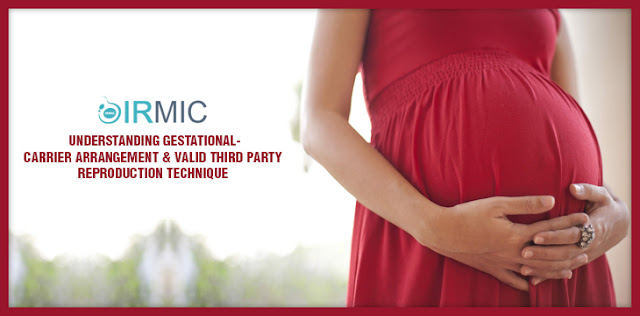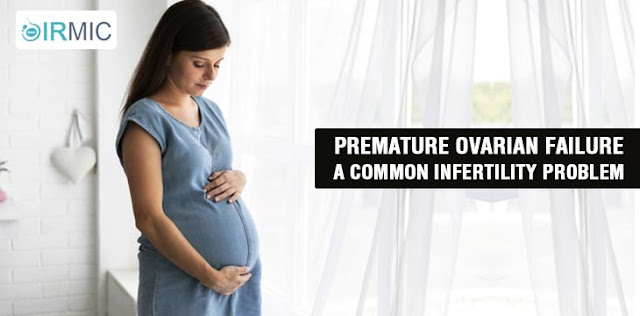Understanding Gestational-Carrier Arrangement & Valid Third Party Reproduction Technique
A gestational-carrier arrangement occurs when designated parents or donors fulfill the egg & sperm but a non-related character carries the fertility. There are many distinct causes why you and your associate may be bargaining with infertility. Luckily, there are also many braced generative technologies now likely to help you accomplish the goal of delivering a normal baby.
Some sterility difficulties may invite for seeking methods known as “third-party reproduction.” This includes another person/other characters behind the intended parents. While such progressions may assist you mature a parent, they also call for thoughtful opinion and consultation with specialists on the medical process and the emotional and legal associations.
WHAT ARE THIRD-PARTY TECHNIQUES?
Third-party procedures include accepting granted eggs, sperm or embryos. Quite often used is a gestational-carrier arrangement where the expected parents supply the egg and sperm but the reproduction is conducted by someone else who has no genetic link.
Surrogacy, on the other hand, is known as “traditional gestational carrier” employs to when the woman who leads the pregnancy further produces the egg. This last system is debatable, rare and banned by some states. It, is, nevertheless, seldom used by gay couples and gay free men.
Each of the third-party arrangements has different social, ethical and legal complexities. Approaches towards these technologies have developed as their use has graced more common as is the crisis with egg donation.
Surrogacy, on the other hand, is known as “traditional gestational carrier” employs to when the woman who leads the pregnancy further produces the egg. This last system is debatable, rare and banned by some states. It, is, nevertheless, seldom used by gay couples and gay free men.
Each of the third-party arrangements has different social, ethical and legal complexities. Approaches towards these technologies have developed as their use has graced more common as is the crisis with egg donation.
WHAT IS A STANDARD GESTATION-CARRIER ARRANGEMENT?
A standard gestational-carrier arrangement is where a woman – a family member, friend or a candidate chosen from an agency – offers productivity from one or two embryos generated or donated by the intentional parents. The embryos are generated by using their own or donated eggs and sperm and implanted using in vitro fertilization (IVF).
Looking at the total expenditure for a gestation carrier it may add up the following like the agency fees, attorney fees , counseling fees, obstetrical fees, hospital fees for delivery plus the fees of the carrier.
WHY A WOMAN MAY CHOOSE A GESTATIONAL CARRIER?
There are many reasons a woman might want to use a gestational carrier. These entail difficulties with the uterus that make becoming pregnant or carrying a pregnancy to term complicated or undesirable. This comprises women without a uterus such as those born without one or who have had a hysterectomy.
One may also get some basic problems such as a hypoplastic or t-shaped uterus, fibroids or scar tissue from infection, surgery or tuberculosis, or adenomyosis. There are even women who have undergone multiple miscarriages or an account of unsuccessful IVF cycles for no recognized purpose.
Even if a woman has a serious medical condition for which pregnancy poses a health risk including, a history of breast cancer, severe heart disease, severe diabetes, lupus significant kidney disease, critical preeclampsia. Older women are more likely to use a gestational carrier as most of these risks rises with age.
Choosing A Gestational Carrier
You will know the status of your gestational carrier, unlike other third-party organizations where this is not constantly the case. The personality you choose might be a family member, a close friend or chosen through a company that specializes in recruiting candidates to serve as a gestational carrier. Reliable agencies use an accurate screening process similar to choosing egg donors. They evaluate the potential carrier’s medical and fertility history and evaluate her emotional well-being too. The carrier selected should be at least 21 years old and by now should have delivered a healthy child at present.
Reference
If you or someone in your family needs assistance for reproduction techniques, try contacting Institute of Reproductive medicine & IVF centre the best Infertility clinic in Delhi.
Content Source: http://drrksharmaivf.in/blog/understanding-gestational-carrier-arrangement-valid-third-party-reproduction-technique/




Comments
Post a Comment